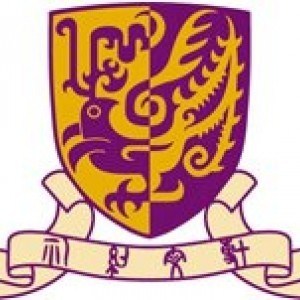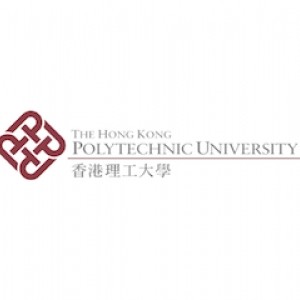Photos of university / #thechineseuniversityofhongkong
Our articulated MPhil-PhD programme provides students with an opportunity of being involved in in-depth studies and focused research in selected areas of electronic engineering. The programme is intended to foster high-quality and forward-looking research activities, so as to meet the society's demand for high-caliber engineers who are knowledgeable in the latest technologies. The Department of Electronic Engineering has 4 research groups which are Biomedical Engineering, Multimedia & Signal Processing, Integrated Circuits & Systems, and Solid State Electronics & Photonics covering the following 7 research areas.
- Biomedical Engineering
- DSP & Speech Technology
- Image and Video Processing
- Microwave & Wireless Communications
- VLSI & ASIC
- Photonics & Optical Communications
- Solid-State Electronics
The MPhil study is research oriented. The normative duration is 2 years for full-time students and 3 years for part-time students with a bachelor degree. An MPhil student is required to complete 4 graduate-level courses. At least one faculty core course must be taken. Students have to obtain at least a B for the Faculty core course to satisfy the core course requirement.
In addition, the student is required to carry out a research project of about 18 months in duration from which a satisfactory thesis is to be submitted. The student must also attend the oral examination to present his/her work to an appointed thesis committee. Students with good academic performance in their first year of study may be permitted to transfer to the PhD stream.
- Advanced Topics in Electronic Engineering: Frontiers of Photonics
- Advanced Topics in Integrated Circuits and Systems
- Advanced Topics in Wireless Communications
- Advanced Topics in Signal Processing
- Advanced Topics in Solid State Technology
- Applied Functional Analysis and Approximation Theory
- Introduction to Biomimetic Engineering
- Advanced Medical Instrumentation and Biosensors
- Selected Topics in Biomedical Engineering
- Prosthetics & Artificial Organs
- Biomedical Information Engineering
- Radio Frequency Integrated Circuit Design
- CMOS Analog Integrated Circuits
- Advanced IC Design Methodology
- Analog-Digital ASIC Design
- Power Management IC Design
- Photonic Integrated Circuits
- Biophotonics
- Advanced Microwave Engineering
- RF Integrated Circuits Design
- Monolithic Microwave IC
- Pattern Recognition
- Digital Coding of Speech Signals
- Video Coding Technology
- Non-linear Signal Processing
- Advanced Computer Vision
- Advanced Digital Signal Processing
- Wavelets
- Detection and Estimation
- Signal Processing Optimization Techniques
- Automatic Speech Recognition
- Nanoelectronics
- Video Coding Technology
- Solid State and Semiconductor Theory
- Advanced Topics in Optoelectronics
- Biophotonics
- Ultrafast Optoelectronics
- Characterization Techniques in Semiconductor Technology
- III-V Compound Semiconductors: Materials & Devices
- Micro- and Nano-Fabrication Laboratory
- CMOS Devices & Technology for VLSI
- Solid State and Quantum Electronic Devices
- Solid State Magnetism and Magnetic Materials
- Ion Beam Materials Analysis
- Fiber Optics: Principles and Technologies
- CMOS Analog IC Design
- Power Management Technology
- RF Circuits and Systems
- Image Processing & Video Technology
- Flexible Electronics and Solar Cell Technology
- Solid-state Sensors and Lighting Systems
- Optical Communication and Interconnects
Faculty Core Course List
- Advanced Computer Architecture
- Techniques for Data Mining
- Image Processing and Computer Vision
- Computer and Network Security
- Information Retrieval and Search Engines
- Big Data Analytics
- Advanced Artificial Intelligence
- Advanced Microwave Engineering
- Pattern Recognition
- Nanoelectronics
- Fiber Optics: Principles and Technologies
- Information Theory
- Random Processes
- Lightwave System Technologies
- Applied Cryptography
- Advanced Wireless Communications
- Advanced Robotics
- Linear System Theory and Design
- Micromachining and Microelectromechanical Systems
- Theory of Engineering Design
- Foundations of Optimization
- Matrix Analysis and Computations
Requirements
- Have graduated from a recognized university and obtained a Bachelor degree in Applied Mathematics / Computer / Electrical / Electronic Engineering / Materials Science and Engineering / Physical Sciences or related fields, normally with honours not lower than Second Class; OR
- Have graduated from an honours programme of a recognized university with a Bachelor degree in Applied Mathematics / Computer / Electrical / Electronic Engineering / Materials Science and Engineering / Physical Sciences or related fields, normally achieving an average grade of not lower than 'B' in undergraduate courses
- All students should fulfil the English Language Proficiency Requirement: TOEFL exam (550 or above, or 213 or above for the computer-based test; 79 or above for the Internet-based test), or IELTS (band 6.5 or above). GMAT (verbal) (Band 21)
Mandatory materials
- Complete online application
- Application fee of HK$300
- One photocopy of your HKID card or other identity document as given in the Application For
- Original copy of official transcripts
- Original copy of official grading scheme issued by the University (if it is not listed on your transcript)
- Original copy of official English Tests score report (TOEFL/IELTS/GMAT)
- Two confidential recommendations
- Brief Curriculum Vitae
- Research / purpose statement (about 600 - 800 words in English, compulsory for PhD application)
- An information sheet to be filled in. It is a standard format specified by our department which essentially summarizes the personal information and academic qualification. It can be downloaded from here (doc format).
Optional materials
- Personal statement
- Copies or abstracts of published papers or research project reports
- Certificates of awards or prizes
Want to improve your English level for admission?
Prepare for the program requirements with English Online by the British Council.
- ✔️ Flexible study schedule
- ✔️ Experienced teachers
- ✔️ Certificate upon completion
📘 Recommended for students with an IELTS level of 6.0 or below.
Scholarships
- Postgraduate Studentships



